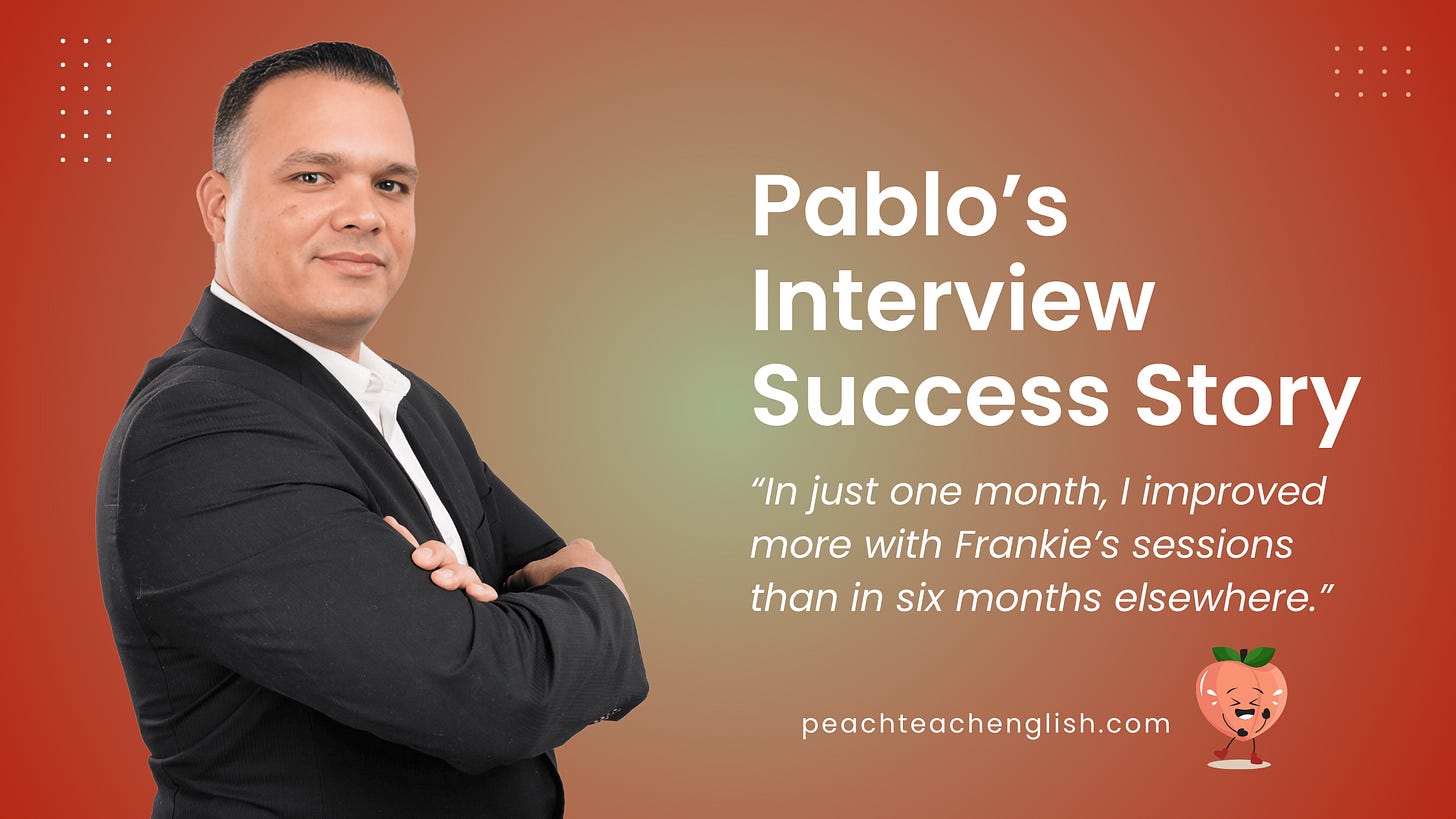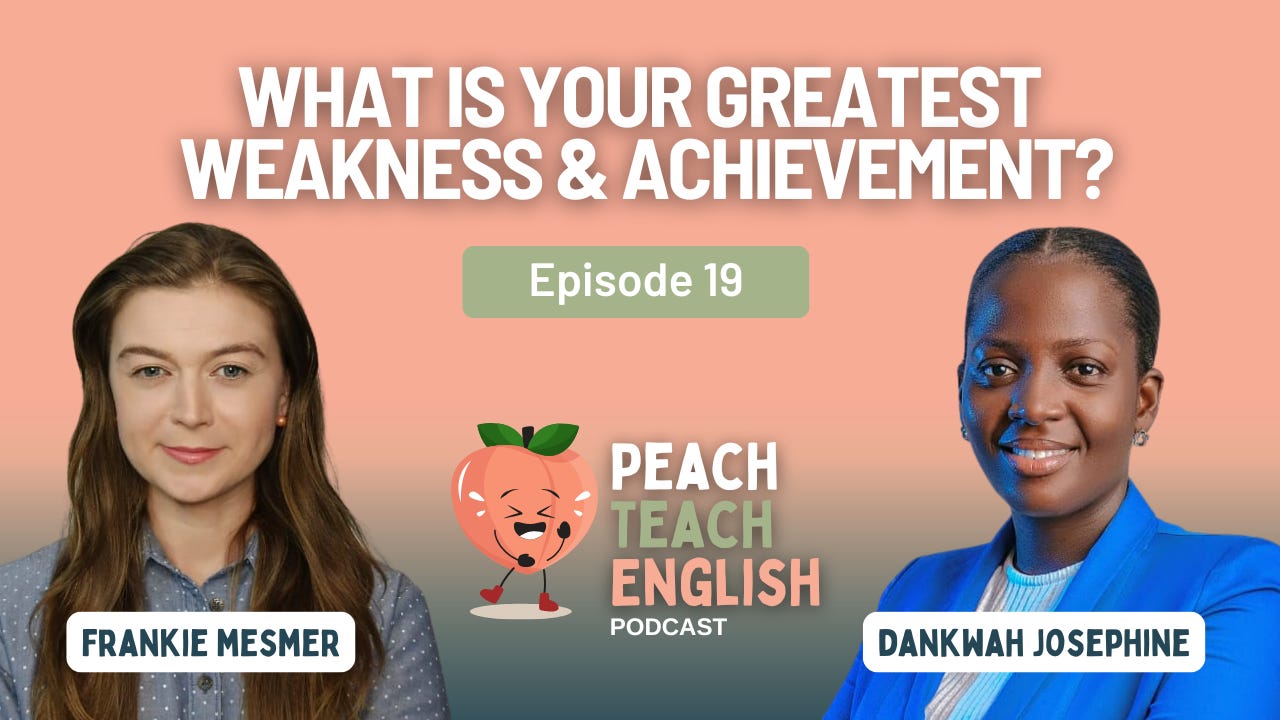Interview Question: What are Your Greatest Strengths & Weaknesses?
A Step-by-step Guide to Help You Develop a Strong Answer to Share Your Greatest Strengths & Weaknesses in Your Next Job Interview
Job interviews can be stressful, especially when you're asked, “What are your greatest strengths and weaknesses?” Many people feel nervous because they’re unsure how to talk about themselves positively or tactfully mention their weaknesses. But don’t worry! This question is an opportunity to highlight your best qualities while also being honest about areas you're working to improve.
Let’s break it down step by step so you can answer confidently.
What is the Interviewer Asking?
When an interviewer asks about your strengths and weaknesses, they want to learn more about:
Your Strengths: They want to understand the skills and qualities you bring to the job and how these can contribute to the company’s success.
Your Weaknesses: They’re interested in whether you can acknowledge areas where you need improvement and how you’re actively working to improve.
Your Self-Awareness: They’re gauging how well you understand your own abilities and areas for growth, which shows your ability to reflect and develop professionally.
Step-by-Step Guide to Answering the Question
Step 1: Identify Your Relevant Strengths
Start by carefully reading the job description. Look for key skills, personal qualities, or experiences the employer values. Then, write down the strengths you have that match these requirements. Here are some examples:
Skills: leadership, communication, problem-solving, decision-making, time management, project management, technical skills (e.g., software & tools), budgeting and financial management, conflict resolution
Personal Qualities: adaptability, empathy, integrity, resilience, self-motivation, collaboration, accountability
Experiences: managing teams or departments, leading projects, achieving goals or KPIs, mentoring or training others, process improvement, cross-functional collaboration, handling high-pressure situations, managing budgets or resources
Select 2 or 3 strengths that best align with the job you're applying for. Make sure you can support these strengths with specific examples or measurable achievements. Here are some examples:
Example 1: "Leadership – Led a team of 10 in a successful project that improved department efficiency by 20%."
Example 2: "Problem-solving – Resolved a critical software issue that impacted 100+ clients, reducing downtime by 30%."
Step 2: Think About Your Weaknesses
Take a moment to identify an area you can improve on. Be honest with yourself, but remember, you don’t need to choose a major weakness. The goal is to show self-awareness and a willingness to grow. Here are some areas to consider when thinking about your weakness:
Skill-based weaknesses: proficiency with software, lack of experience with certain tools, limited language skills, need to improve data analysis skills, unfamiliarity with certain techniques
Personal Qualities: trouble asking for help, focusing too much on details, discomfort with ambiguity, perfectionism, difficulty confronting conflict, struggle with receiving negative feedback
Work Habits: maintaining work-life balance, managing competing priorities, taking on too many tasks at once, being overly critical of oneself, struggling with delegation
Choose one weakness that you can easily show progress on. Pick an area where you can demonstrate that you're actively working to improve. Here are some examples:
Example 1: "Time management – I’ve started using a project management tool to prioritize tasks and stay on track with deadlines."
Example 2: "Limited English Skills - I sometimes feel nervous speaking English in meetings, but I’ve been taking conversation-based English lessons to improve my confidence and fluency.”
Step 3: Give Examples
For both your strengths and weaknesses, it's important to provide concrete examples. This helps interviewers understand not only what you claim about yourself but also how you've applied those qualities in real situations. Here’s how you can structure your examples:
Strength Example
For your strengths, you need to show how your skills, qualities, or experience helped you succeed in previous roles. Here are some questions to consider when selecting your example:
What specific achievements can you highlight that demonstrate your strength?
How did your strengths contribute to solving a problem or achieving a goal in your previous role?
Can you provide measurable results or outcomes that show how your strength benefited your team or company?
Example:
"I am a strong leader and team player. At my last job, I led a team of 20 employees to complete a major project on time. I organized meetings, delegated tasks, and ensured everyone had the resources they needed. As a result, we not only finished the project ahead of schedule but also built a strong relationship with the client, leading to them becoming a recurring client."
Weakness Example
For your weaknesses, choose a professional development area you're actively working on. This shows your commitment to growth and improvement. Here are some questions to guide your choice:
What is an area you're actively working to improve in your current or past roles?
How have you recognized that this weakness exists and why do you want to improve it?
What steps are you currently taking to overcome this weakness?
What progress have you made, and how are you seeing results?
Example:
"One of my weaknesses is that I used to feel nervous speaking English in front of large groups. To improve, I joined a public speaking community and started practicing by giving small presentations in English. Over time, I’ve become more comfortable speaking in front of others, and I can now confidently lead meetings and discussions in English."
Sample Answer:
Here is an example of how you could answer the question:
Tell me your greatest strength and weakness.
"My greatest strength is my ability to collaborate and motivate my team. I believe that good communication is key to a successful team. For instance, at my previous job, I led a cross-functional team to launch a new product. I made sure everyone was aligned with clear goals and expectations, which led to the project being completed 15% ahead of schedule.
One of my weaknesses is that I sometimes lack confidence when speaking English in meetings. As a manager, I understand how important clear communication is, so I’ve been taking business English online classes to specifically enhance my English fluency for professional settings. Through these classes, I’ve already noticed that I’m contributing more in meetings, and I’m committed to continuing my improvement.”
Bonus Tip: Be Honest and Humble
When discussing both your strengths and weaknesses, aim for honesty while maintaining a growth-oriented mindset. For your strengths, focus on the skills and qualities that genuinely make you an asset to the company, but be careful not to come off as arrogant. It’s about finding that balance between showcasing what you do well while staying humble.
When addressing weaknesses, avoid saying something unrealistic like, “I don’t have any weaknesses.” Everyone has areas for improvement, and this question is an opportunity for you to demonstrate that you’re dedicated to continuous professional development.
Good Luck on Your Interview – You've Got This!
By preparing your answer thoughtfully and following the steps outlined, you can approach this question with confidence and authenticity. Remember, the key is to showcase both your strengths and your commitment to personal growth. Being honest and humble in your response will help you stand out as a self-aware, dedicated candidate. Good luck with your interview, and remember that this question is just another opportunity to demonstrate your value to the company!
Real-Life Success: How Pablo Landed His Dream Job
If you're wondering how these strategies work in the real world, let me share a success story from one of my students, Pablo. When he first came to me, he was feeling unsure about his English and nervous about interviews. But with personalized coaching and targeted practice, Pablo gained the confidence and skills he needed to excel. Not only did he nail his job interview, but he also landed his dream job!
Pablo’s success is proof that with the right preparation and personalized guidance, you can transform your interview performance and take your career to new heights. Want to see how these strategies worked for Pablo?
[Read Pablo's Full Story Here]
Want to Nail Your English Interview?
If you’re preparing for an English-language job interview, I’m here to help! Sign up for a FREE class where we’ll discuss your goals and how we can work together to improve your English for interviews. I’ll guide you in crafting confident answers, correcting grammar and pronunciation mistakes, and improving your vocabulary to help you stand out.
But that's not all! I also provide support to help you improve your overall professional English. Whether it's preparing for business meetings, presentations, or everyday workplace communication, I can help you refine your language skills so you're confident and effective in any professional setting.
Don’t let language hold you back. Sign up today and start your journey toward success! Let’s work together to help you shine in your next interview!
Want more tips about how to answer “What is Your Greatest Weakness & Achievement?” Check out my podcast episode with Dankwah Josephine when we answer that exact question.





